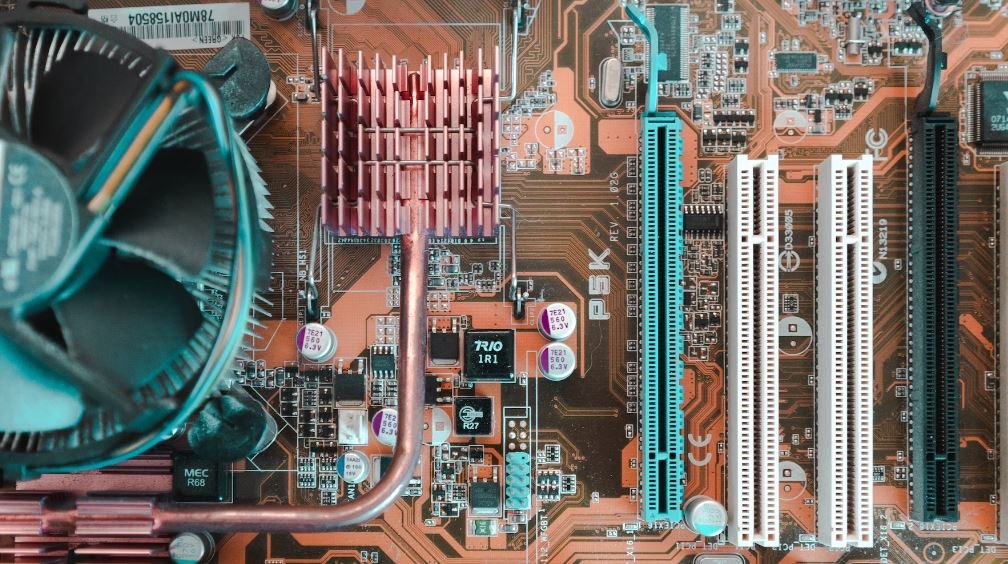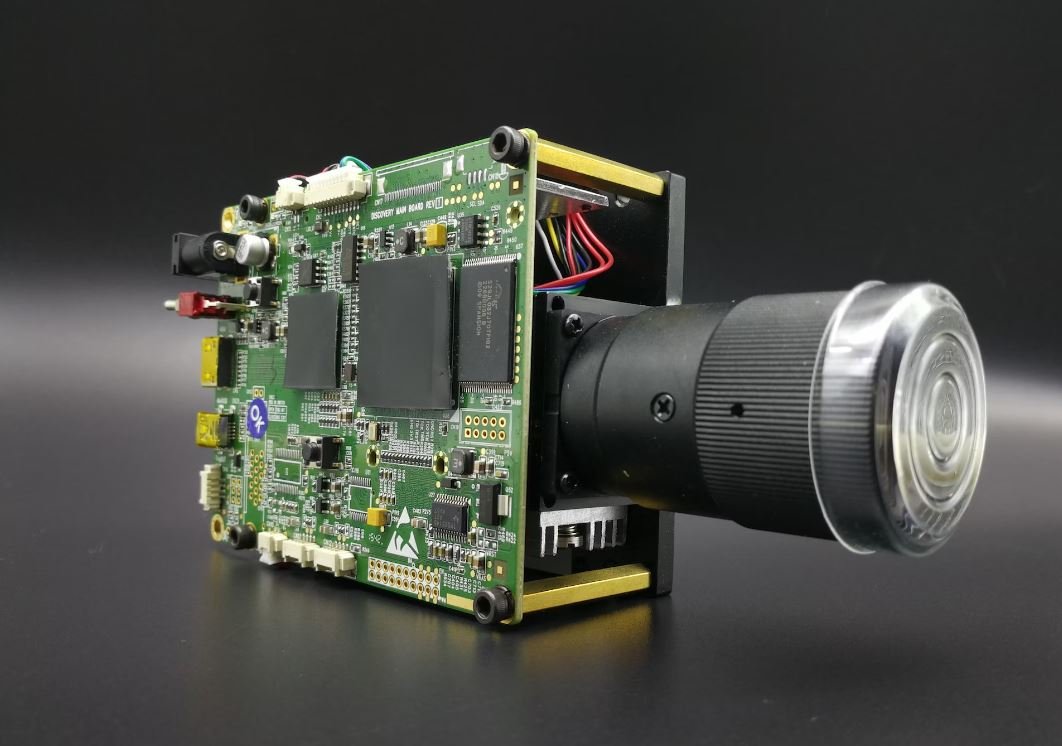How Can AI Apply in Your Everyday Life?
Artificial Intelligence (AI) is revolutionizing numerous aspects of our lives, from smartphones to healthcare, entertainment to transportation. As AI technology continues to advance, it becomes increasingly integrated into our everyday activities, shaping the way we work, communicate, and live.
Key Takeaways
- AI is rapidly advancing and changing various aspects of our lives.
- AI can be found in smartphones, healthcare, entertainment, and transportation.
- AI technologies personalize user experiences and improve efficiency.
The Influence of AI on Daily Activities
AI has woven itself seamlessly into our daily activities, enhancing our experiences and making tasks easier than ever before. From the moment we wake up until we go to bed at night, AI impacts our lives in numerous ways.
For example, personalized news feeds delivered by AI algorithms make it easier for individuals to stay updated with topics of their interest.
- Social Media: Social media platforms like Facebook and Instagram leverage AI algorithms to prioritize content in users’ feeds based on their preferences and interactions.
- Music Streaming: AI-powered music streaming services, such as Spotify and Apple Music, analyze users’ listening behaviors to recommend personalized playlists and discover new songs.
- Virtual Assistants: Smart virtual assistants like Amazon’s Alexa and Apple’s Siri utilize AI to understand and respond to voice commands, perform tasks, and provide helpful information.
AI Advancements in Healthcare
AI has made significant advancements in the healthcare industry, transforming the way doctors diagnose and treat diseases, improving patient outcomes, and enhancing medical research.
For instance, AI-powered algorithms can analyze medical images, helping doctors detect and diagnose conditions more accurately.
| Application | Benefit |
|---|---|
| Cancer Diagnosis | AI algorithms aid in early detection and accurate diagnosis of various types of cancer, improving patient survival rates. |
| Radiology | AI helps radiologists interpret medical images, reducing diagnostic errors and improving efficiency. |
| Personalized Medicine | AI algorithms analyze genetic data to provide personalized treatment plans and drug recommendations. |
The Impact of AI in Transportation
AI is reshaping the transportation sector, leading to safer and more efficient travel. Autonomous vehicles and smart traffic management systems are just a few examples of how AI is revolutionizing transportation.
Did you know that AI can predict traffic patterns and optimize routes in real-time?
- Self-Driving Cars: Companies like Tesla and Waymo are developing AI-powered self-driving cars that have the potential to make travel safer by reducing human error.
- Traffic Management: AI algorithms monitor traffic patterns, analyze data from sensors, and optimize traffic signal timings to minimize congestion and improve the flow of vehicles.
- Ride-Sharing Services: AI enables ride-sharing services like Uber and Lyft to efficiently match drivers with passengers, reducing waiting times and improving convenience.
How AI Enhances Entertainment
AI plays a significant role in the entertainment industry, transforming how we consume and interact with content.
For example, AI algorithms can analyze users’ preferences and viewing history to recommend personalized movies and TV shows.
| Application | Benefit |
|---|---|
| Content Recommendations | AI algorithms personalize content recommendations on streaming platforms, ensuring users discover shows and movies tailored to their preferences. |
| Virtual Reality (VR) | AI enhances VR experiences by creating realistic simulations, improving immersion and interactivity. |
| Video Games | AI is utilized in video games for character behavior, physics simulations, and intelligent opponents, providing more dynamic and engaging gameplay. |
AI and Everyday Work
AI technologies are increasingly integrated into everyday work, improving efficiency, automating tasks, and enabling more data-driven decision-making.
Imagine having AI-powered tools that automate repetitive tasks and provide valuable insights to boost productivity.
- Data Analysis: AI algorithms can analyze large volumes of data, identify patterns, and extract valuable insights, helping businesses make informed decisions and gain a competitive edge.
- Chatbots: AI-powered chatbots handle customer inquiries and support services, providing instant responses and improving customer satisfaction.
- Virtual Meetings: AI enables tools like Zoom and Microsoft Teams to provide smart features, such as automatic transcription, live captions, and background noise cancellation, enhancing remote collaboration.
Embracing the AI Revolution
Artificial Intelligence has become an integral part of our everyday lives, transforming various aspects of how we live, work, and entertain ourselves. As technology continues to advance, the influence of AI is expected to grow even stronger.
So, whether it’s personalizing your social media feed, receiving accurate medical diagnoses, or enjoying immersive entertainment experiences, AI is shaping the present and future of everyday life.

Common Misconceptions
AI is only for complex tasks
One common misconception about AI is that it can only be applied to complex tasks or highly technical fields. However, AI has a wide range of applications in our everyday lives.
- AI can be used in voice assistants like Siri or Alexa to perform simple tasks like setting reminders or playing music.
- AI is present in many smartphone applications for tasks such as image recognition, language translation, and personalization of recommendations.
- In the healthcare industry, AI is used to identify patterns in patient data to assist in diagnosis and treatment recommendations.
AI will replace human jobs entirely
Another misconception is that AI will completely replace human jobs, leading to high unemployment rates. While AI can automate certain tasks, it is more commonly used to augment human capabilities rather than replace them entirely.
- AI-powered chatbots can handle basic customer service inquiries, allowing human agents to focus on more complex or specialized issues.
- In manufacturing, AI can assist workers by enhancing productivity and quality control, rather than replacing them outright.
- In educational settings, AI can provide personalized learning experiences, helping students and teachers to achieve better outcomes.
AI is always biased
AI systems are developed using algorithms, which can be influenced by biased data. However, it is incorrect to assume that all AI technologies are inherently biased.
- There are efforts within the AI community to address bias and promote fairness in AI systems, such as developing ethical guidelines and increasing transparency in algorithmic decision-making.
- By continuously evaluating and refining AI algorithms, bias can be minimized and fairness can be improved.
- AI systems can also be designed to mitigate bias by involving diverse teams in their development and considering different perspectives during the design process.
AI is only available to big tech companies
Contrary to popular belief, AI is not limited to big tech companies and is increasingly accessible to individuals, small businesses, and startups.
- Many cloud computing platforms offer AI services that can be utilized by developers and businesses of all sizes.
- Open-source AI frameworks and tools are available, enabling developers to build their own AI applications without extensive financial resources.
- AI marketplaces, such as app stores or online platforms, provide a space where individuals and small businesses can access and deploy AI-powered solutions.
AI lacks creativity and human emotions
While AI may not possess human emotions or creativity in the same way, it can still exhibit impressive capabilities in these areas.
- AI-powered systems have been developed to create music, art, and writing that can rival human-produced works.
- Natural language processing technologies enable AI chatbots and virtual assistants to engage in conversations that simulate human-like interactions to a certain extent.
- AI algorithms can analyze and interpret emotions through facial recognition and sentiment analysis, allowing for applications in fields like marketing or mental health.

AI in Voice Assistants
In today’s digital world, voice assistants have become increasingly popular and are now integrated into various devices such as smartphones, speakers, and even cars. AI powers these assistants, enabling them to understand and respond to voice commands effectively.
| Voice Assistant Brand | Market Share |
|———————-|————–|
| Amazon Alexa | 43% |
| Google Assistant | 41% |
| Apple Siri | 9% |
| Microsoft Cortana | 6% |
| Others | 1% |
AI in Healthcare
The use of AI in healthcare is revolutionizing the way medical professionals diagnose diseases and deliver treatments. Machine Learning algorithms are capable of analyzing large datasets, aiding in the detection of certain medical conditions.
| Medical Condition | AI Accuracy (%) |
|———————–|—————–|
| Breast Cancer | 94% |
| Lung Cancer | 96% |
| Diabetic Retinopathy | 95% |
| Alzheimer’s Disease | 87% |
| Skin Cancer | 91% |
AI in Transportation
AI technologies are transforming the transportation industry by making travel safer and more efficient. Intelligent systems are being developed to support autonomous vehicles, reducing the number of accidents caused by human error.
| Autonomous Vehicle Benefits | Statistics |
|————————————————-|—————-|
| Reduction in road accidents | 90% decrease |
| Fuel consumption optimization | Up to 20% |
| Traffic congestion reduction | 40% decrease |
| Improved road safety | 30% decrease |
| Time savings on travel | Up to 25% |
AI in Agriculture
Agriculture is benefiting from AI in numerous ways. With the help of AI-powered drones and robots, farmers can monitor crops, optimize irrigation, and even detect diseases before they spread.
| AI Applications in Agriculture | Impact |
|—————————————-|————————–|
| Precision farming | Increased crop yield |
| Livestock monitoring and management | Enhanced animal welfare |
| Pest control and disease detection | Reduced crop loss |
| Supply chain optimization | Improved efficiency |
| Soil and weather monitoring | Optimal resource usage |
AI in Entertainment
AI has greatly influenced the entertainment industry, enriching our leisure time in various ways. From personalized content recommendations to smart virtual assistants, AI-powered innovations enhance our entertainment experiences.
| AI-Based Entertainment Applications | Examples |
|————————————–|—————————————————–|
| Content recommendation systems | Netflix, Spotify, YouTube |
| Virtual reality and augmented reality | Oculus Rift, Microsoft HoloLens, Pokémon Go |
| Chatbots for interactive experiences | Mitsuku, Cleverbot, Google Assistant |
| Voice and face recognition | Apple Face ID, Amazon Rekognition, Google Assistant |
AI in Finance
AI’s integration with finance brings forth efficiency and accuracy in the world of banking and investments. Machine Learning algorithms process vast amounts of financial data, providing valuable insights and reducing fraud risks.
| AI Applications in Finance | Benefits |
|————————————–|————————————————–|
| Fraud detection and prevention | Decreased financial losses |
| Robo-advisory and automated trading | Lower fees and personalized investment strategies |
| Credit scoring and loan approvals | Faster decision-making and reduced bias |
| Customer service chatbots | Enhanced customer experience |
| Risk analysis and market predictions | Improved investment decisions |
AI in Education
AI technology is transforming the way we learn and acquire knowledge. Intelligent tutoring systems, adaptive learning platforms, and automated grading are some examples of how AI is revolutionizing the education sector.
| AI Applications in Education | Advantages |
|—————————————-|—————————————————–|
| Personalized learning experiences | Tailored education based on individual needs |
| Intelligent tutoring systems | 24/7 access to personalized study assistance |
| Automated grading and feedback | Efficient assessment and prompt feedback |
| Adaptive learning platforms | Customized curriculum based on individual progress |
| Language learning and translation aids | Enhanced language acquisition and communication |
AI in Retail
AI has transformed the retail industry, enhancing customer experiences and improving business operations. From personalized recommendations to automated inventory management, AI technologies are making shopping more convenient and efficient.
| AI Applications in Retail | Benefits |
|——————————————-|—————————————————|
| Personalized product recommendations | Increased customer satisfaction |
| Chatbots for customer support | 24/7 assistance and reduced wait times |
| Visual search technology | Enhanced product discovery and convenience |
| Inventory management automation | Optimized stock levels and reduced costs |
| Fraud detection and prevention in e-commerce | Reduced online payment risks and chargebacks |
AI in Social Media
AI plays a vital role in social media platforms, providing us with customized content, targeted advertisements, and enhanced user experiences. These platforms use AI algorithms to analyze user behavior, preferences, and trends.
| AI-Based Features in Social Media | Examples |
|——————————————–|————————————————-|
| Personalized news feeds | Facebook, Twitter, Instagram, LinkedIn |
| Automated content moderation | YouTube, Facebook, Instagram |
| Facial recognition for photo tagging | Facebook |
| Sentiment analysis and targeted ads | Twitter, Instagram, LinkedIn |
| AI-powered filters and effects | Snapchat, Instagram, TikTok |
AI in Cybersecurity
As cyber threats continue to evolve, AI is becoming a crucial component in safeguarding digital systems and sensitive information. AI-powered security systems can detect and mitigate cyber attacks more effectively than traditional methods.
| AI Applications in Cybersecurity | Capabilities |
|————————————–|——————————————————–|
| Anomaly detection | Identifying and flagging abnormal network behaviors |
| Phishing and fraud detection | Real-time threat detection and prevention |
| Password and data protection | Advanced encryption and secure authentication methods |
| Intrusion detection and prevention | Constant monitoring of network activity to prevent breaches |
| Malware analysis and identification | Faster detection and response to malware attacks |
Artificial Intelligence (AI) is revolutionizing various aspects of our everyday lives. From voice assistants that simplify daily tasks to healthcare systems that improve diagnosis accuracy, the potential of AI is immense. AI has also found its way into industries like transportation, agriculture, entertainment, finance, education, retail, social media, and cybersecurity, transforming them in significant ways. These tables showcase some of the key applications and benefits of AI in these fields. With further advancements and incorporation into our everyday lives, AI is poised to drive even more remarkable changes across various sectors.
Frequently Asked Questions
What is artificial intelligence (AI)?
Artificial intelligence refers to the development of computer systems that can perform tasks typically requiring human intelligence, such as speech recognition, problem-solving, decision-making, and learning.
How can AI be applied in everyday life?
AI can be applied in various ways in everyday life, such as voice assistants like Siri and Alexa, personalized recommendations on streaming platforms, autonomous vehicles, virtual assistants in customer service, and smart home devices that can automatically regulate temperature, lighting, and security.
Are there any applications of AI in healthcare?
Yes, AI has applications in healthcare. It can be used for early detection of diseases, medical image analysis, personalized medicine, drug discovery, and virtual nursing assistants.
Can AI help in managing daily tasks and reminders?
Absolutely! AI-powered smart virtual assistants like Google Assistant, Apple’s Siri, and Amazon’s Alexa can help in managing daily tasks, setting reminders, scheduling appointments, and providing relevant information like weather updates, news, and more.
Can AI improve education and learning experiences?
AI has the potential to revolutionize education by providing personalized learning experiences, adaptive tutoring systems, intelligent content creation, and automating administrative tasks, thereby enhancing educational outcomes.
What role does AI play in the entertainment industry?
AI can be applied in the entertainment industry for content recommendation systems on streaming platforms, creating realistic visual effects in movies, optimizing content distribution, and improving audience analytics and engagement.
Is AI being used in the financial sector?
Yes, AI is being extensively used in the financial sector. It is utilized for fraud detection, algorithmic trading, credit underwriting, risk assessment, customer service chatbots, and personalized financial advice.
How does AI contribute to transportation and logistics?
AI can enhance transportation and logistics by optimizing route planning, improving traffic management, automating tasks in warehouses, enabling autonomous vehicles, and developing intelligent supply chain systems to streamline operations.
Can AI contribute to environmental sustainability?
Absolutely! AI can contribute to environmental sustainability by enabling energy-efficient systems, optimizing resource usage, monitoring and predicting natural disasters, managing waste, and aiding in climate change research.
Is AI being used in social media platforms?
Yes, AI is widely employed in social media platforms. It helps in content moderation, spam detection, targeted advertising, sentiment analysis, and personalized content curation based on user preferences.





